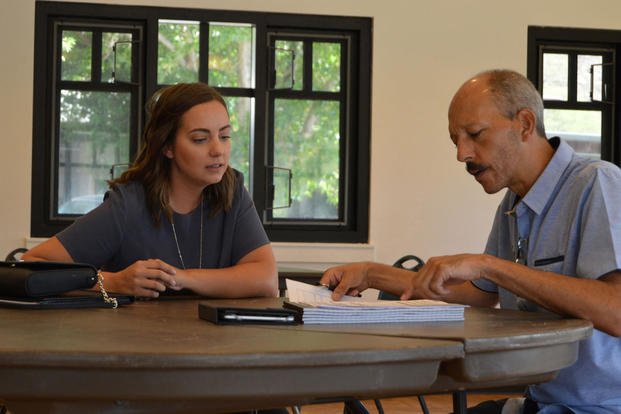Are any of these symptoms familiar? At least some of them?
Your heart is beating faster than usual, your hands feel clammy, your mouth is so dry it feels like you have cotton inside -- and the butterflies in your stomach are out of control.
Are these common feelings when you are going to be tortured -- or going to a job interview? The answer is a job interview. For some, the job interview is torture.
Why is the job interview so feared? What are "they" going to do to you that is so nerve-racking?
Here are three reasons for the fear factor and the job interview.
1. Fear of the Unknown
Ideally, you would sit poised thumbing through a magazine, feeling relaxed as you wait your turn to have a conversation with the interviewer for the company. Not so when waiting for the interview.
Think about it. What do you have to lose here? What's the worst thing that can happen? If you don't get this job, is the world going to stop turning?
Realizing that bills must be paid, this is the wrong approach to present yourself. If you are coming across as desperate -- "Please, please, hire me" -- the interview is beginning on a defensive note. Interviewers smell fear.
2. Fear of Looking Like You Don't Know What You're Talking About
You may have prepared -- or not -- but all of a sudden, you forget everything that you have been preparing. Your mind goes "blank." It happens all of the time. Who is putting the pressure on you to perform? You. Who knows you better than you know yourself? You.
So you're about to go in and talk about yourself. What's so tough about that? For some people, that is huge. They consider it bragging, and they "hate" bragging and talking about themselves and their accomplishments.
3. Fear of Rejection
Who wants to be rejected? Nobody. It doesn't feel good at all. In the job interview, often a complete stranger says, "We don't want you; you're not good enough." At least that's what you hear. The truth is that it may have nothing to do with you. It has to do with the interviewer/company getting the most for the dollar. And there are tons of extenuating circumstances.
The Cures
A Change in Thinking
The first and most important step is to change the way that you view the interview. This is not an appointment with the dentist who may inflict pain. It is a conversation with another person. What is the worst thing that can happen as a result of the interview? You won't get the job, which may not have been the right job for you anyway.
Secondly, this is a conversation -- a two-way process. You will be interviewing them as much as they are interviewing you. Is there a good fit here -- both ways? What looks good on paper may not be what it appears -- for either party. It will be part of your job during the interview to investigate whether this is a good place for you, and whether you want to invest a significant part of your life here. When you are not checking them out and what they have to offer, you are missing an opportunity that you may regret later.
Calming Techniques
One of the best techniques to handle stress is through breathing. Take deliberate, shallow breaths. Take air in through the nostrils and exhale quietly through your mouth. This is a technique that should be practiced as a relaxation technique before the interview so that your body gets used to slowing down the breathing process and relaxing.
Relaxation techniques such as yoga and meditation classes are recommended for anyone who has an extreme case of "interview fright." The interview can cause panic attacks if the fear is strong enough. Pre-conditioning will do wonders for this type of anxiety.
Preparation before the Interview
These are competitive times, and you should steel yourself to expect some rejection. Think about it this way, "Did you get a marriage proposal after every date?" Well, you probably aren't going to get a job offer after every interview.
For every job you apply for, there are more than likely three to four equally qualified candidates in line for the same job. Whether you stand out from "the crowd" will depend on your preparation and ability to show confidence in yourself -- believing that you are the "best candidate for this job." How can you possibly sell anyone anything if you don't believe in it yourself?
Preparation will make you feel more confident and less anxious. Can you imagine giving a performance without some practice and preparation? "Winging" the interview in today's market is a big mistake.
Fear of Rejection
You may have had a number of interviews with no offer. You may be feeling defeated, and it's beginning to affect your self-esteem.
This would be true of anyone. But it is a mistake to take it personally. There are so many factors that could be affecting the offer that it is impossible to say what is happening. There may be internal candidates, relatives promised jobs, a competitor who is a perfect match for the job, a lack of chemistry between you and the new boss, a mismatch in salary needs, etc., etc.
Let It Go
Give yourself credit for getting an interview; only a small percentage of people get this far in the process. Give yourself credit for going out there and putting yourself on the line, even though it is painful for you. Give yourself permission to not get job offers. Believe that an offer will come through when it is the right offer -- the right fit for the company and for you. Take the control back and reject the feeling of fear.
When you have done everything to prepare for the interview, and you are satisfied that you can present yourself in the best light possible, the next step is for you to let it go. You can learn something from each interview.
Learn to enjoy meeting new people and having new experiences. Who knows? You may even grow to like interviewing.
The Interview Coach, Carole Martin, is a celebrated author, job coach and speaker on the subject of interviewing and recruiting. She is a contributing writer at Monster.com and featured on talk radio.
Want to Know More About the Military?
Be sure to get the latest news about the U.S. military, as well as critical info about how to join and all the benefits of service. Subscribe to Military.com and receive customized updates delivered straight to your inbox.











